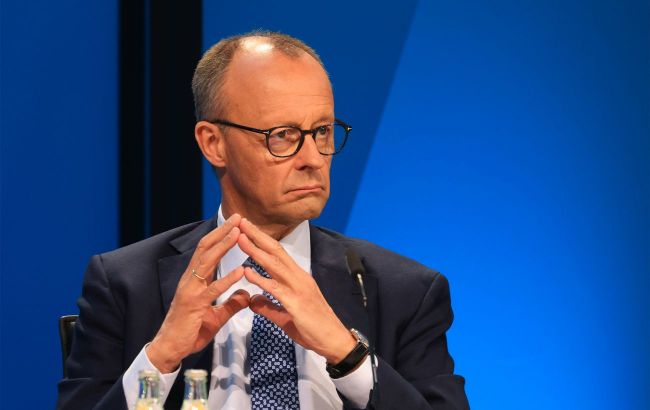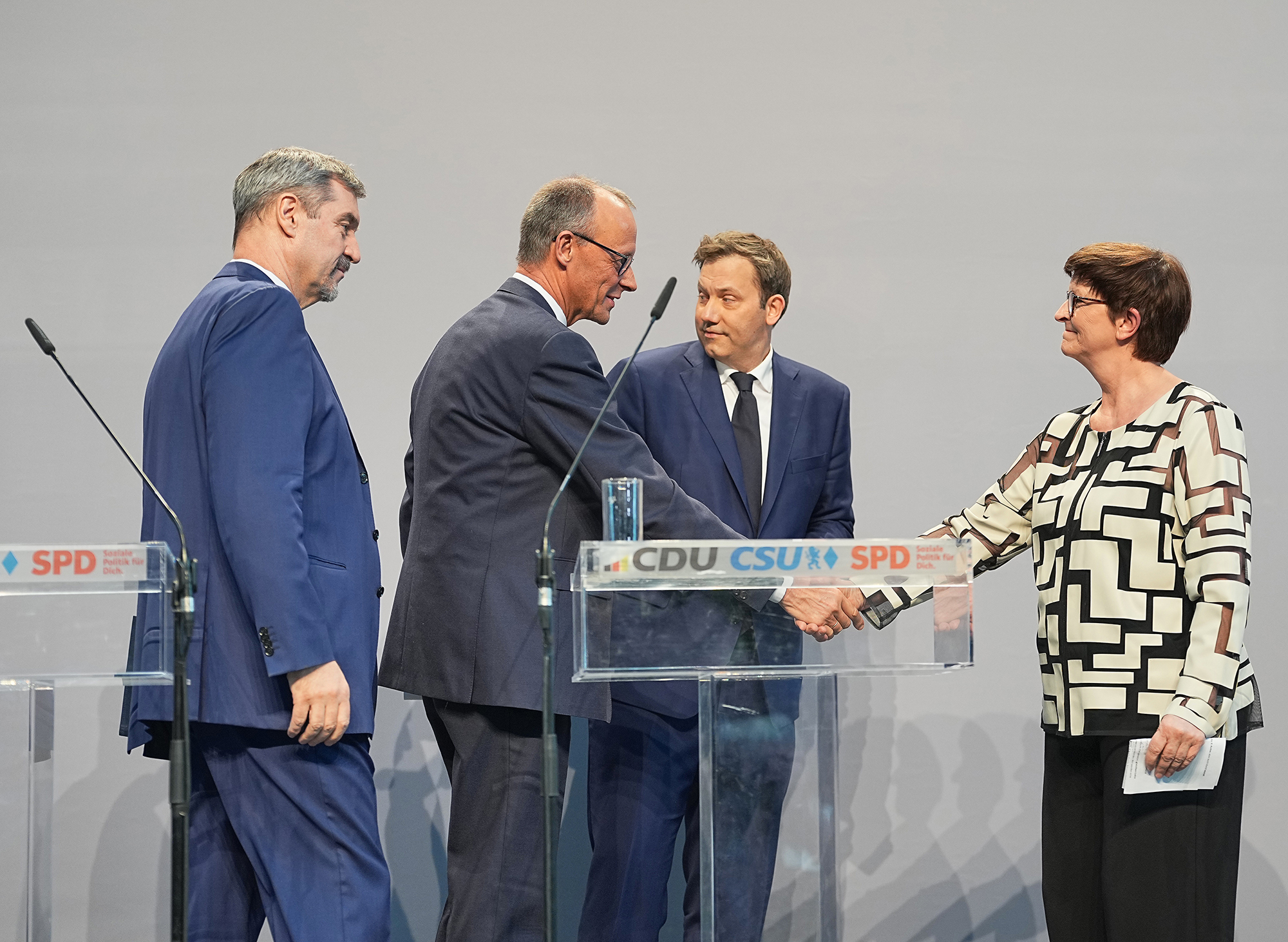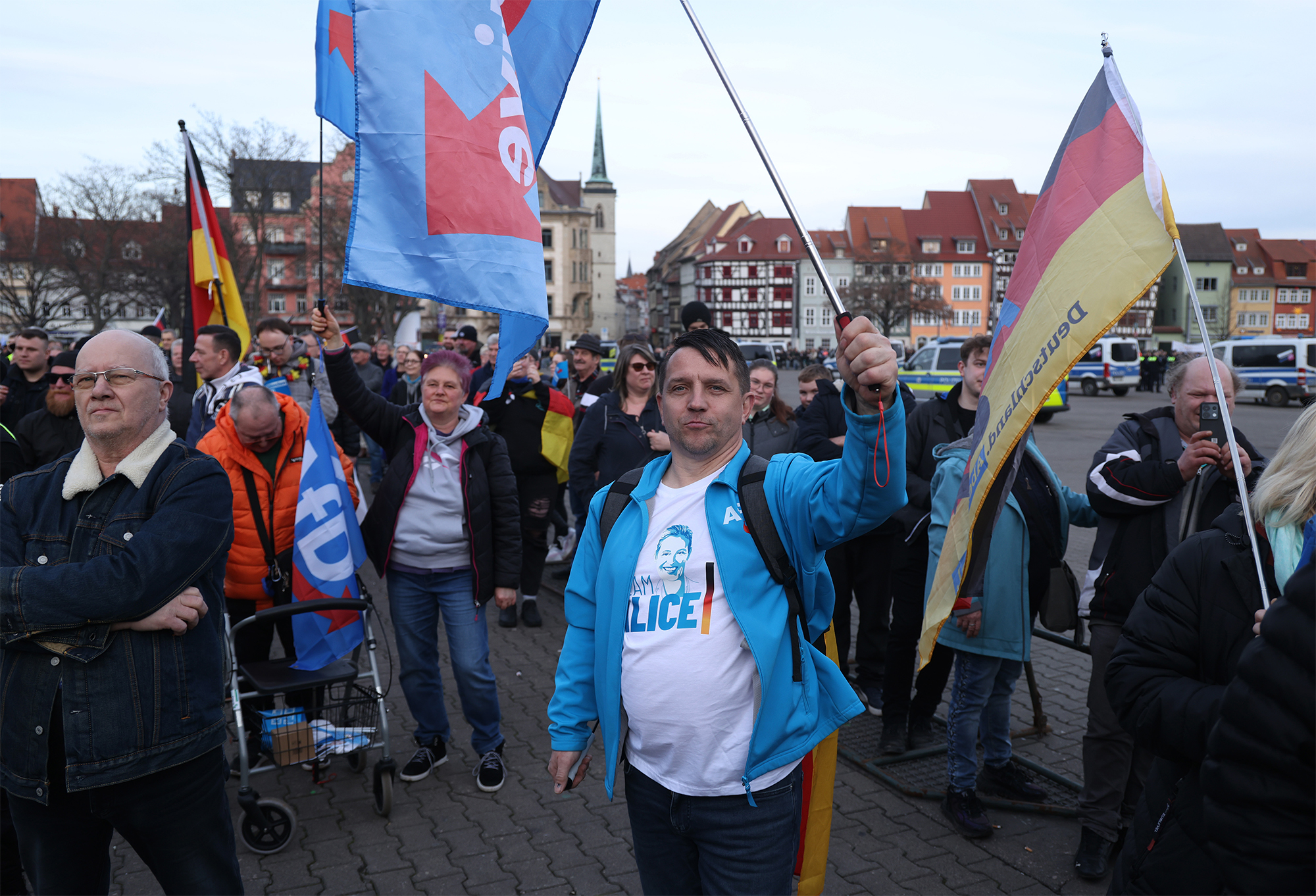Merz's time. Will new German Chancellor become Europe's leader and what should Ukraine expect
 Friedrich Merz (photo: Getty Images)
Friedrich Merz (photo: Getty Images)
Whether Germany under Friedrich Merz will become the new leader of the Western world, how the new chancellor is breaking the established rules of German politics, and whether Ukraine should wait for Taurus deliveries are discussed in RBC-Ukraine's article.
Takeaways
- How did Trump force Merz to reconsider his approach to politics?
- Why will the Taurus missiles be the main test for Chancellor Merz?
- What does the new government promise Ukraine, and what should refugees expect in Germany?
- Will the new government in Berlin cooperate with the far-right Alternative for Germany?
"This is really the last warning to the political parties of the democratic center in Germany to come to common solutions," said Friedrich Merz, who is officially to become the new Chancellor of Germany today, May 6. He was referring to the sky-high 21% of the vote won by the right-wing radical Alternative for Germany (AfD).
This time, the Christian Democratic Union (CDU), led by Merz, together with its eternal allies from the Christian Social Union (CSU), was able to form a grand coalition with the Social Democrats. Merz's future government will rely on an extremely thin majority in the Bundestag - only 13 votes.
However, according to many estimates, the very possibility of forming a coalition without right-wing radicals may be the last time in Germany. The rapid growth of the AfD's popularity in the next convocation of the Bundestag may lead to the fact that it will no longer be possible to do without them when forming the next government.
So Merz will have to reverse this trend by returning the German voters' sympathies to the traditional center-left parties. But he will have to do this in extremely difficult internal and external conditions.
 A session of the German Bundestag (photo: Getty Images)
A session of the German Bundestag (photo: Getty Images)
The German economy, the engine of the entire European Union, has been in recession for a long time. Tariff disputes with the United States only add to the instability. The problem of migration remains unresolved. The war in Ukraine is still ongoing, and the German army and intelligence officials openly say that in a few years, Putin will be able to attack NATO countries.
Even before he took office, Merz had already lost some of the trust he gained in the election. The latest Forsa polls show that 24% of Germans would now vote for the CDU/CSU, while in February, the bloc garnered 28% in the elections. And more than half of the electorate does not believe that Merz will be a good chancellor.
Instead, the AfD's popularity continues to break records. In the two months since the last election, it has gained another 5% in popularity and is now leading the polls for the first time in postwar German history with 26% support.
However, any crisis automatically means an opportunity. In this case, it is an opportunity for Merz to restore Germany's long-forgotten role as a European leader. "Germany has every chance to become Ukraine's number one partner. Right now is a historic moment when Germany can become a true leader in Europe, not only as an economic power," former Ukraine's Ambassador to Germany Andrii Melnyk said in an interview with RBC-Ukraine.
Why Merz changed Constitution and reneged on his promises
To some extent, Merz will have an easier time in office than his predecessor, Olaf Scholz. The new chancellor will rely on a coalition of two rather than three parties, which gives him more room for maneuver. However, the restrictions imposed by the alliance with the Social Democrats remain, which is reflected in the coalition agreement between the CDU/CSU and the Social Democrats, which often lacks specifics.
For example, the coalition members agreed to continue and strengthen various types of support for Ukraine without providing much detail on its scope and nature.
However, in his public speeches in recent weeks, Merz has demonstrated much greater determination. Moreover, the period between the German elections and his assumption of office coincided with the maximum turbulence in global politics caused by Donald Trump's activity.
Europe quickly realized that the eternal alliance with the United States could suddenly be broken and that the security and future of the European Union is a matter for the EU itself, as representatives of the new US administration have been saying openly.
"The key message to Donald Trump is Germany is back on track. Europe can rely on Germany," Merz said after signing the coalition agreement, promising a strong plan to put our country back on the front foot.
It is noteworthy that in doing so, he went against his established political outlook. According to the European Council on Foreign Relations, Merz's foreign policy views have always been based on three pillars: commitment to the pan-European cause, a close alliance with the United States, and the narrowest possible understanding of German national interests. In other words, an unwillingness to position Germany as a pan-European leader and guide.
 The signing of the coalition agreement. From left to right: CSU leader Markus Söder, Chancellor Friedrich Merz, and Social Democratic leaders: Lars Klingbeil and Saskia Esken (photo: Getty Images)
The signing of the coalition agreement. From left to right: CSU leader Markus Söder, Chancellor Friedrich Merz, and Social Democratic leaders: Lars Klingbeil and Saskia Esken (photo: Getty Images)
But the turbulent times forced Merz to reconsider his approaches. It is not without reason that as many as 82% of Germans no longer consider the United States a reliable ally. And Merz's Germany, in the expectation of many at home and abroad, is called upon to fill this leadership vacuum in the Western world.
To do this, Merz, even before becoming chancellor, had to take measures that contradicted not only his worldview but also his promises during the election campaign.
For example, during the campaign, Merz actively advocated limiting budget expenditures, which was one of his key election promises. However, in March, the CDU leader passed constitutional amendments through parliament that lifted restrictions on financing several areas, including defense, through borrowing, thus easing the so-called debt brake.
To do this, an emergency meeting of the previous Bundestag had to be called just days before the end of its term because the current convocation would not have had enough votes to change the Constitution.
This decision paved the way not only for the allocation of the long-promised 3 billion euros to help Ukraine but also for much larger projects. In particular, Merz plans to inject up to a trillion euros into the development of the German army and infrastructure, which would have been technically impossible under the old constitutional rules.
However, Merz will still have to convince German voters that such steps are appropriate. German society is not in favor of the country taking on additional responsibilities and playing a leadership role in Europe.
"If we look at opinion polls, when asked whether Germany should take on more responsibility for security in Europe or more responsibility for some international affairs, more than 50 or even almost 60% of Germans answer this question negatively," Viktor Savinok, a political scientist and international analyst at the Western Institute in Poznan, told RBC-Ukraine.
This is probably due to some stereotypes that are widespread in German society. "Sometimes I think that many people in Germany are firmly convinced that if Putin decides to go ahead and attack other European countries, Berlin will be able to negotiate with the Russians to keep them from being moved. This, in my opinion, explains the slow pace in strengthening its defense capabilities and the hope that they will sort things out," Andrii Melnyk told RBC-Ukraine.
According to the diplomat, the illusory nature of such hopes is obvious even given Putin's background, who met the collapse of the USSR (the greatest geopolitical catastrophe of the 20th century, according to Putin) in East Germany. So in the Kremlin's mind, it is also part of the Soviet empire. "I believe that Friedrich Merz feels the reality of this military threat to Germany and will act accordingly," Melnyk said.
Why Taurus issue is dividing new coalition
In recent weeks, RBC-Ukraine has heard many hopes from Ukrainian officials and Western diplomats that Germany under Merz will generally pursue a much more active foreign policy than under its predecessors. Merz has not yet received official chancellor powers, and this process has already begun.
For example, Germany has been very active in the work of the Coalition of the Willing, and its representatives participate in various meetings on the topic of a peaceful settlement in Ukraine, along with the French and the British. This is, although the word willing was probably the least appropriate epithet to characterize the Scholz government.
On the Ukrainian track, Merz will have to demonstrate this determination very soon. "The first litmus test for the new coalition will be the supply of Taurus long-range cruise missiles to Ukraine. During the election campaign and after his victory, Friedrich Merz directly advocated providing Ukraine with the Taurus system," Melnyk told RBC-Ukraine.
 Taurus missiles (photo: Getty Images)
Taurus missiles (photo: Getty Images)
Although Taurus missiles alone will not be able to radically change the course of hostilities (especially since Germany will a priori be able to provide Ukraine with a very limited number of missiles), there is no better test of Merz's political will.
After all, he can easily find many explanations for the refusal to provide Ukraine with Tauruses: the position of his coalition partners, the Social Democrats, public opinion in Germany, which fears that this will drag the country into war, and the general uncertainty of the Trump administration regarding assistance to Ukraine.
The Taurus issue is already causing controversy within the ruling coalition. For example, Social Democrat Boris Pistorius, who will remain in the new government as defense minister, expressed his skepticism. According to him, there are strong arguments both in favor of and against this decision.
In contrast, his government colleague, CDU representative Johannes Wadefuhl, who will take over as foreign minister, has previously openly supported the transfer of the Taurus to Ukraine, although in recent days he has become somewhat more cautious on this issue.
In general, both Pistorius and Wadephu, as key government officials from Kyiv's point of view, should be considered pro-Ukrainian. "Wadephul and Pistorius are two figures who, first of all, have a lot of trust among the population. And restoring trust in democratic government is one of the important challenges for this government. These politicians have, on the one hand, trust among the population, good ratings, and, on the other hand, they both have a clear understanding of the security challenges facing Germany," Dmytro Shevchenko, former Consul of Ukraine in Munich and Chancellor of the Ukrainian Free University, told RBC-Ukraine.
It is equally important that in the new structure of the German government, the Chancellor and the Foreign Minister will be members of the same party, the CDU, which will avoid contradictions between them. After all, in the previous government, the green Foreign Minister Annalena Baerbock often clashed with the Social Democrat Scholz.
On two strategic issues - Ukraine's membership in the European Union and NATO - the new government's position is pro-Ukrainian. For Berlin, this is no less of a political shift than the abandonment of the debt brake.
This is especially true of Ukraine's membership in NATO, about which the German government has always been extremely skeptical, as has the United States. The coalition agreement says they remain committed to the prospect of Ukraine's membership in NATO.
However, the new government is quite tough on the issue of Ukrainian refugees, who number more than a million in Germany. But this is not about some kind of prejudice against Ukrainians. It is about abandoning the actual open-door policy that Germany has been pursuing for the past decade.
"They will cut social support, and this was clear even before the election. They are already saying that Ukrainian asylum seekers will receive fewer social benefits and more penalties for unemployment. This applies not only to Ukrainians but to any recipients of social assistance," Shevchenko told the agency.
In 2022, Merz even provoked a scandal by calling Ukrainian war refugees tourists on welfare. The CDU leader later apologized for his words, but did not change his tough approach to migration issues.
So much so that a month before the election, he broke another fundamental rule of respectable German politicians: never rely on the votes of right-wing radicals from the Alternative for Germany. But at the end of January, it was the AfD's votes that allowed Merz to pass a resolution calling for strict migration measures through the Bundestag.
Will Merz cooperate with right-wing radicals
Merz's January maneuver with the AfD caused a real storm in German politics and society, including crowded protests in the streets of German cities. The CDU leader ignored the so-called firewall - refusing any coalitions and cooperation with the far right.
In the current Bundestag, the right-wing radicals will be the largest opposition faction, and it will be even more difficult for Merz to avoid contact with them. Especially given the extremely modest margin of victory for the parliamentary majority.
"It will not be easy for Merz because, on the one hand, part of his political force demands that he maintain the firewall at all costs. But, on the other hand, there is a growing influence of the environment that says that the firewall no longer has such a weighty force, so it is necessary to abandon it. These are primarily East German figures and various conservative publicists," Viktor Savinok told RBC-Ukraine.
According to the expert, the latter's arguments boil down to two theses. The first one is that the AfD is not prepared for systematic work in the government; it does not have the staff, so its involvement in the coalition will lead to a drop in the ratings of the right-wing radicals.
The second argument is that the AfD, once it becomes part of the government, will turn to moderate rhetoric, as happened with radical forces in some other European countries.
"Both of these arguments can be debated, especially the second part, about softening the rhetoric, because we see that throughout its more than 10-year history, the AfD has been radicalizing its rhetoric," Savinok said.
 Alternative for Germany rally (photo: Getty Images)
Alternative for Germany rally (photo: Getty Images)
It will be even more difficult for Merz to justify potential cooperation with the right-wing radicals, given that the party has recently been officially recognized as an extremist. However, this does not mean it is banned; such a status only means that German intelligence services and law enforcement agencies will have greater ability to control its activities.
"The fact that the AfD has been recognized as extremist does not mean that the party will cease to exist. I even see a risk that the party may take this decision into account and revise its policy a bit and become less extremist, but this will not change its ideological platform - a return to the Germany of the 80s, which no longer exists," Dmytro Shevchenko told the agency.
According to him, the realization that in the next elections, it is the AfD that may win the most votes may become a factor that will keep the grand coalition together despite all the disagreements. Merz himself has so far been very cautious in commenting on the possibility of banning the AfD.
In any case, the end of the political transition in Germany should benefit the country itself, Europe as a whole, and Ukraine in particular. Incredibly difficult geopolitical conditions are pushing Germany and Merz to take the lead in the Western world. Moreover, the German electorate may not give adequate politicians a second chance.
Sources: Bloomberg, ECFR, Al Jazeera, BBC, text of the coalition agreement, expert comments by Viktor Savinok and Dmytro Shevchenko.

